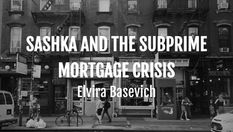top of page
Search


"A Genealogy for the End of the World": An essay by Travis Holloway (Keywords: Anthropocene;Climate Change;Counter-history;Justice;Decolonial Thought)
What does it mean to call our era the Anthropocene, an age defined by “humanity” as a geological force? This essay interrogates that name and the universal “we” it assumes. Tracing the entanglements of colonialism, slavery, racial capitalism and environmental extraction, it offers a philosophical counterhistory of the human and its others. Drawing on decolonial thought and philosophical genealogy, it asks whether rethinking our past might open the possibility of a more just e
Travis Holloway
13 min read


"On Being and Appearing: Social Reproduction and the Family Form": An essay by Tatiana Llaguno (Keywords: Reproductive Labour;Anti-Social Family; Freedom;Alienation)
This essay advances a Marxist feminist claim that the family is the capitalist form of appearance of unwaged reproductive labour. Using a Hegelian-Marxist method centered on capital’s necessary appearances, it shows how the family mystifies, privatizes, and extracts reproductive labour. Revisiting Marx’s critique of Hegel’s Philosophy of Right, it argues that the family is necessitated by capital and concludes by calling for its abolition and the socialization of reproductive
Tatiana Llaguno
15 min read


"The Unnatural Side of Nature" by Rafael Holmberg (Keywords: Human Nature;German Idealism;Nature-Culture Divide;Climate Change)
This essay explores the unstable boundary between nature and culture, showing how science, philosophy, and politics continually reshape what we call 'natural'. It shows how we continually reinterpret natural phenomena through cultural lenses and how this distortion shapes public responses to the climate crisis, turning a stark natural threat into a cultural dispute. It argues that truly confronting climate change requires rethinking what we mean by nature itself.
Rafael Holmberg
13 min read


"Was Marx a Philosopher?" by Christoph Schuringa (Keywords: Capital; Hegel; Actualization; Praxis; Revolution)
It is often thought that Marx, despite starting out as a philosopher, sought to break with philosophy in order to carry out his mature work. In this essay, Christoph Schuringa argues that Marx's overall project, culminating in Capital, is not concerned with replacing philosophy with some other enquiry, but to raise philosophy itself to its highest power and to actualize it. As a philosopher, Marx, far from carrying out any derivative work, sought to surpass his predecessors s
Christoph Schuringa
14 min read


"Neoplatonic Voyaging" by Jonathan Egid (Keywords: Cross-cultural philosophy; Intellectual history; Syncretism; Cosmopolitanism; Non-western philosophy)
This essay traces the global journey of Neoplatonism across Europe, Africa and Asia and how it evolved through encounters with Christianity, Islam, and Hinduism. From its origins in Alexandria to its translation and reinterpretation in Ethiopia, the Islamic world and Mughal India, Neoplatonism was not simply transmitted, but was transformed. The essay reveals how a single philosophical system was reshaped across linguistic and cultural borders by those who engaged with it.
Jonathan Egid
14 min read


"Hannah Arendt and Exile " by Anna Argirò (Keywords: Refugee; Nation-state; Sovereignty; Human rights; Plurality)
Hannah Arendt’s experiences of exile, from Nazi Germany to the U.S., shaped her reflections on statelessness, belonging, and the limits of the nation-state. In this essay, Anna Argirò explores Arendt's urgent call to rethink human rights, citizenship, and politics beyond borders. In a world of walls and displacement, her thought invites us to imagine a political community grounded not in exclusion, but in plurality, responsibility, and shared humanity.
Anna Argirò
13 min read


"Punishment and Forgiveness" by Luke Russell (keywords: Justice; Retribution; Blame; Compassion; Morality)
What does it mean to truly forgive and when is it morally right to do so? In this essay, Luke Russell examines the remarkable case of Abdirashid Abdi, a refugee who forgave his attacker and advocated for her leniency. Russell challenges our assumptions about justice, asks whether forgiveness can coexist with punishment, if compassion might sometimes carry risks and what role victims play in shaping the moral landscape of accountability.
Luke Russell
15 min read


"Bergson and Intuitive Knowledge" by Alan Shepherd (Keywords: Intuition, Time, Truth, Memory, Metaphysics)
Alan Shepherd examines Bergson’s view of intuition as a key to metaphysical knowledge. Unlike Kant, Bergson believes we can directly access reality through our experience of time, or “duration.” Intuition expands through memory, evolution, and mystical insight, revealing a creative, loving force behind life. More than intellect, it offers deep, spiritual truths and reclaims metaphysics as a meaningful, ethical, and experiential pursuit.
Alan Shepherd
13 min read


"Peter Singer and Fifty Years of Animal Liberation" by Daan Stoop (Keywords: Suffering; Animal Welfare; Veganism; Factory Farming; Food Ethics)
In 1975, Australian philosopher Peter Singer asked a deceptively simple question of animals: ‘Can they suffer?’ The implications launched a revolution in our thinking about animal rights and food ethics. But has animal suffering diminished in the fifty years since?
Daan Stoop
13 min read


"When Liberation Becomes Subjugation: The Moral Paradox of Regime Change in Iran" by Hossein Dabbagh & Patrick Hassan (keywords: Iran; Regime Change; Anti-Imperialism; Islamic Republic; Legitimacy)
This essay critiques the moral and strategic failure of foreign-imposed regime change in Iran, arguing that such interventions paradoxically reinforce the Islamic Republic's legitimacy rooted in anti-imperialism. Drawing on post-colonial theory and historical precedent, Dabbagh and Hassan call for “solidaristic non-imperialism”: supporting grassroots Iranian movements without replicating imperialist dynamics that undermine authentic agency and indigenous democratic change.
Hossein Dabbagh & Patrick Hassan
10 min read


"What was Marx’s Concept of Ideology?" by Sandro Brito Rojas (Keywords: Inversion; Alienation; Capitalism; False Consciousness; Revolution)
Sandro Brito Rojas argues that, for Marx, ideology is a false consciousness that obscures the true nature of social relations, particularly the alienation caused by the division between mental and material labor. Rojas highlights that Marx’s critique of ideology is not just intellectual but calls for revolutionary action. Ideology is a consequence of social contradictions, not their root cause. To overcome ideological distortions, a material transformation of society is neces
Sandro Brito Rojas
11 min read


"It Takes All Kinds: On Friendship" by John Lysaker (Keywords: Companionship; Recognition; Personal Growth; Differences; Life Friendships)
John Lysaker explores the many forms and values of friendship. He explores friendship as a lived interaction and examines the various goods it provides, such as recognition, growth, and care. Rather than ranking friendships, Lysaker argues for their diversity, showing how even imperfect or partial bonds enrich our lives and help shape who we become. He concludes, "Friendships prove better when they multiply and differentiate and so check our limits and metabolise our varied p
John Lysaker
16 min read


"Rituals of Disappearance" by Roddy Brett (Keywords: Disappeared Bodies; Genocide; State Terrorism; Erasure; Rituals)
Roddy Brett explores the haunting legacy of enforced disappearance as a tool of political violence, particularly in Latin America. He examines the psychological and societal impacts on the families of the disappeared, delving into their daily rituals of hope and despair. By analyzing the intersection of state terror, genocide, and the denial of bodies, he calls for a deeper understanding of the human dimensions of disappearance and a more critical engagement with this crime a
Roddy Brett
7 min read


"Violence and Disappearance: Knowing and Seeing" By Terrell Carver (Keywords: Disappeared; Absence; Memory; Bodies; State Terrorism)
In this evocative essay, Terrell Carver explores the disturbing power of political violence, memory, and absence. He examines how violence typically communicates through visibility and how disappearance as a strategy upends that logic. Focusing on Argentina’s “disappeared” and the symbolic resonance of everyday memorials like the baldosas por la memoria, Carver asks: How can we know and relate to the violence we haven't seen? How do we remember what was meant to be erased?
Terrell Carver
8 min read


"What’s Wrong with Anthropocentrism?" by Christopher Belshaw (Keywords: Value; Nature; Moral Status; Sentience; Agency)
Is it wrong to value humans above all else? In this provocative essay, Christopher Belshaw explores the limits of anthropocentrism, weighing our moral duties to other creatures and the natural world. He argues that while extreme human-centered thinking is flawed, our unique moral agency brings special responsibilities. We shouldn’t dominate nature, but nor should we deny our moral role as custodians. He presents a nuanced defense of human significance without giving into supe
Christopher Belshaw
7 min read


"Towards an Art of Punishment” By Benjamin George Coles (Keywords: Education; Justice; Rehabilitation; Suffering)
Benjamin George Coles argues that artistic means should often be incorporated into punishments – and indeed that we would benefit generally from thinking of punishment in more aesthetic terms. He first identifies the various objectives that we standardly have with punishment and argues for the primacy of an educational one. He then describes a series of real-life educational punishments and closes with a discussion of why the notion of punishment art is such a strange one.
Benjamin George Coles
20 min read


“The Pandemic Was A Portal”: By Ragini Tharoor Srinivasan (Keywords: Covid; Letters; Possible Futures; Collectivity; Inequalities)
Ragini Tharoor Srinivasan reminisces about the radical possibilities that the Covid pandemic presented us with. It was an opening, a portal through which we could have, collectively, walked into another world, a better world. But this was not to last. Slowly, but steadily, the radical potential of the pandemic was eroded and we returned to the 'normal'. But does this the mean portal is closed once and for all? What do we need to remember—to make that impossible world possibl
Ragini Tharoor Srinivasan
12 min read


"Primal Fear: The Weaponisation of Nothingness" By Brad Evans (Keywords: Violence; Bodies; Disappearance; State Power; Sovereignty)
In this opening essay of our recent issue on Violence, Brad Evans argues that "violence of disappearance" is the most extreme and visible form state sovereignty and power takes in contemporary times. This kind of violence often translates into the literal removal and destruction of actual human bodies, irrespective of age and gender, but always only those belonging to particular races, ethnicities or ideologies, by means of genocide, abductions, forced migrations and (un)civi
Brad Evans
7 min read


"Trans-Inclusive Philosophies" by Sophie Grace Chappell (Keywords: Embodiment; Gender; Truth; Reason; Theory; Lived Experience; Analytic Philosophy)
"Philosophical theorizing is made for human beings, and it should fit human beings, and not the other way around."
Sophie Grace Chappell
14 min read


“Sashka and the Subprime Mortgage Crisis”: An Essay by Elvira Basevich (Keywords: Family; Housing Crisis; Poverty; The American Dream; Refugees; Mortality; Memoir)
"My brother, Sashka, ran away from home when he was fifteen. It is not quite right to say he ran away from home; our home deserted us."
Elvira Basevich
18 min read
bottom of page



